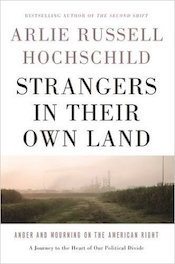What a year for political satire. It’s nourishing; it lowers our stress level; it breaks taboos. Every democracy needs satire but one wonders how much it will count when it comes to votes on November 8th.
For many months following the US invasion of Iraq in 2003 when demonstrations of patriotism and US prowess, heartily broadcast and reinforced by US media, criticism of America’s war policy was barely tolerated. The nation’s wimpy image (military defeat, reprocessed as “The Vietnam syndrome”, was buried; and a new era of ‘just wars’ was launched– so Americans believed. After they successfully (sic) routing of the Taliban in 2001, then overthrew Saddam, US troops were unassailable, the Iraqi victims so welcoming of liberation. (We tend to forget how it was only when body bags started arriving home that criticism, beyond marginal anti-war activism, surfaced.)
Dissent took more than a year to emerge and even then criticism came initially only in the form of satire, e.g. Jon Stewart in The Daily Show. Stewart’s mockery of these wars awakened Americans to the lies they’d been consuming. His funny exposes pricked their conscience.
Military folly remains sacrosanct in the USA but parody and satire were essential to renewed critical discourse on the government’s aims, its strategies, and the behavior of its troops. Political satire has its place in any culture, in any period.
What I’m witnessing from our witty satirists (many of them based in the ‘liberal’ centers of New York and California ) in today’s US election season is not satire. It’s ridicule. Yes, these skits and caricatures make us laugh. They are undeniably clever and The Donald provides abundant fodder for comedy. (Clinton too, but to a lesser degree.)
What these comics’ ultimate aims are, I’m uncertain. Evening entertainment,  no doubt; and kudos for their wit. However, if they hope that brilliant ridicule will motivate people into political action and genuine debate, they are misguided. I suspect, regrettably, that fans who enthusiastically distribute these nuggets of funny wisdom will accomplish nothing– beyond feeling themselves more informed and more intelligent. Their indulgence may. moreover, move them utterly further from those –not only The Donald but also his many loyalists– whom they view as dumb, ill-informed, gun-totting religious hardliners.
no doubt; and kudos for their wit. However, if they hope that brilliant ridicule will motivate people into political action and genuine debate, they are misguided. I suspect, regrettably, that fans who enthusiastically distribute these nuggets of funny wisdom will accomplish nothing– beyond feeling themselves more informed and more intelligent. Their indulgence may. moreover, move them utterly further from those –not only The Donald but also his many loyalists– whom they view as dumb, ill-informed, gun-totting religious hardliners.
Cartoonists are having a field day this election season: The Onion, Washington Post, Truthdig, are joined by many others. I’ve no problem admitting they’re clever and fun. But ridicule has its limits; it can undermine healthy dialogue. By definition ridicule is: speech or action intended to cause contemptuous laughter at a person or thing; derision.
Engaging examples of ridicule I receive come from well informed ‘liberal’ colleagues who, moreover, consider themselves political activists. They are not shirkers; they aren’t so disenchanted that they’ve eschewed news channels for basketball, cartoon and cooking shows. No; they indulge in sharing these ridiculing images as if they’re somehow engaging in political action. It won’t work.
Misunderstanding how ridicule operates meanwhile imbues these would-be activists with a sense they are doing something, that they’re so funnily effective that they’ll turn the tide of public opinion and defeat their opponents. They’re misguided.
New York City is a notorious enclave of political and personal ridicule. It’s a lifestyle here, a putative sign of its inhabitants’ sophistication and intellectual superiority. It’s invoked during this campaign season as a means of being politically enlightened, and active. Ridicule is good for laughs, yes. But it’s ineffective in terms of changing the behavior of their objects of derision. Indeed I suspect that partisans of the target of that contempt interpret this humor as a kind of racism. So they may instead rally around the target (as a victim)—in this case Donald Trump—with a sense of injustice and evermore energy.
They need to read Strangers in Their Own Land: Anger and Mourning on the American Right, a timely survey by sociologist Arlie Russell Hochschild who devotes her anthropologist’s temperament to understanding a part of America that others make little effort to comprehend. Hochschild’s mature investigation challenges ‘liberals’’ views of fellow citizens in Louisiana who they are likely to dismiss as occupants of ‘Trump territory’, justly worthy of ridicule. Basing her conclusions on extensive research, admitting that we all (even sophisticated Berkeley and New York liberals) “live in enclaves”, Hochschild is able to show considerable compassion for white, Christian Louisianaians whom others often deride [1]. In her recounted interviews she vividly demonstrates this community’s political intelligence and she suggests they are grossly and dangerously misunderstood by other enclaves. She concludes: if “we can find common ground… there are possibilities”, and advises liberals that “the shoe is on our foot to reach across.”
Notes.
[1] In the presidential primaries earlier in the year, it was noted that as few as 19% of New York voters cast their ballot. This New York rate was only exceeded by Louisiana voters.